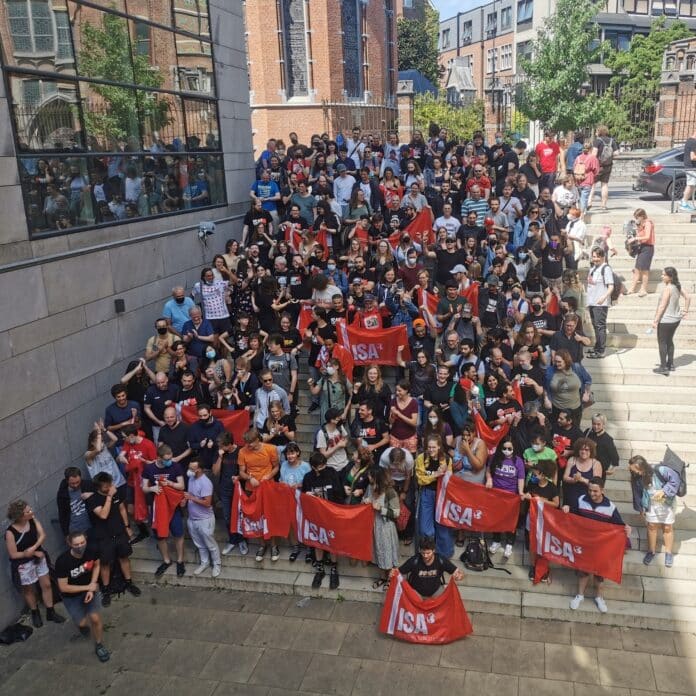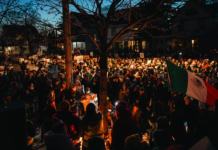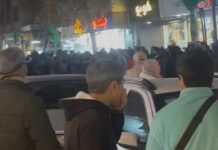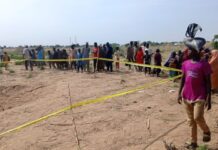ISA cadre school discusses world events
Per Ake Westerlund, ISA
(This article was first published on 28 July 2022)
The world is experiencing turbulent events, coming at break kneck speed — economic and political crises, wars and mass uprisings.
This was how Sonja Grusch summarized present global processes in her introduction to the opening plenary discussion on World Perspectives at the ISA cadre school, which is currently taking place in Belgium.
This week, over 250 ISA members from over 20 countries and all continents could finally meet face-to-face for a week of discussions and exchange, after two years of covid.
Meetings like this are invaluable, even though ISA had great success overcoming the obstacles presented by the pandemic in 2020 and 2021, holding 3 very successful Virtual Marxist Universities. Still, because of European migration walls as well as covid rules, comrades from several countries could only attend via zoom alongside hundreds of other members around the world.
Global perspectives
The world perspectives discussion had two introductions, by Sonja Grusch and Andre Ferrari, members of ISA’s International Executive from Austria and Brazil respectively. This report will present some of the points made in this very rich and broad ranging discussion, for more complete analysis we recommend specific articles and statements.
Sonja listed the most recent important events that underlined the character of the period, such as Nato sending more arms to Ukraine, Russian missile attacks on Odesa, mass revolt and now attempts at state repression in Sri Lanka, the ECB increasing interest rates for the first time in 11 years, the general strike in Tunisia, etc.
She also discussed the war in Ukraine, stressing the ISA stands for the independence of Ukraine including rights for minorities and how independent working class organizing and politics are needed. This war is part of the new cold war and inter imperialist conflict. The outcome is not yet clear, but a victory by either side will mean a strengthening of reactionary imperialist blocs.
The war also has devastating effects on the urgent climate crises, with the return of more oil, gas and nuclear power.
Andre in his introduction quoted the Italian Marxist Antonio Gramsci “The crisis consists precisely in the fact that the old is dying and the new cannot be born; in this interregnum a great variety of morbid symptoms appear.”
Among those symptoms Andre counted the rise of the far right, the food, energy and financial crises affecting 1.2 billion people. He then reported on growing struggles and revolts, focusing on recent events in Sri Lanka, the “epicenter of global crisis” and Ecuador. In many countries, trade union struggles and strikes are on the rise, with major trade union demonstrations in London and Brussels. He also emphasized the struggle for abortion rights as a key political issue.
The first contribution in the discussion which followed was by Sammy from Germany, who pointed to the climate movement there as one of the most advanced in the world. Millions participated in climate strikes called by Fridays For Future in 2019. Again, on 21 September 2021, 700,000 demonstrated. The climate movement has two wings, one anti-capitalist and another linked to the Green Party, which is part of the German government.
Two interesting features are now developing in the climate struggle, with “occupy” groups being formed in universities in a number of countries. They plan occupations in November, during COP27 which is being held in Egypt. The other is climate activists approaching trade unions to get them involved in strikes and protests, starting with a strike day announced by FFF in September.
Abortion rights, socialist feminism and US politics
Women’s struggles and attacks on women’s rights was the theme raised by Jasmine from Austria. She reported from mass struggles in Turkey, against the country leaving the Istanbul convention for women’s rights claiming it “normalized homosexuality”. And demonstrations of 200,000 women against femicide in Chile. Ireland, Britain, Israel and other countries have also seen strong responses to femicides. Poland has seen several waves of mass protests against abortion bans. Jasmine also showed how women have been in the leadership of many important struggles, such as in Myanmar, and in workers struggles in key sectors.
Kailyn from the US underlined the seriousness of the Supreme Court decision to abolish Roe vs Wade and the initiatives taken by Socialist Alternative. 22 states have laws and proposals prepared to abolish right to abortion, and in some cases also assistance or even information about abortion. The right wing has pushed through their agenda against public opinion, where for decades support for Roe has been around 50% with 20–30% against.
The protests waves, first when the proposal was leaked and then when the decision was taken, gathered some hundreds of thousands, but have been short lived. Democrats but also official women’s organisations and Planned Parenthood have focused on the November elections as the means to defend abortion rights.
Socialist Alternative initiated many of the demonstrations and protests around the US. In contrast to Democrats, Socialist Alternative demands a federal law now, and federal abortion clinics. In Seattle, Socialist councillor Kshama Sawant has proposed making the city a sanctuary city for abortion rights, with no rights for the police to act on behlf of other states. This to be financed with an increased Amazon tax. Two days after this discussion, the law in Seattle was passed!
Elsewhere, for example in Houston, Texas, Socialist Alternative members demand other councils and councilors follow this example. The struggle for abortion rights will be prolonged and also linked to social and class demands for living wages.
The link between struggle against oppression and workers struggles was underlined by Anja from the International Committee. Its important for the ISA to continue and develop its socialist feminism.
Kelly from the US reported on a new interesting opinion poll, that showed every major institution but organized labor has lost confidence among Americans. Support for Biden is lower than it was for Trump at the same time during his presidency. The Democratic Party stands to lose significantly in the midterm elections, due to the crisis in health care, housing and inflation. They could save some seats on the basis of promising to reverse the attacks on abortion rights. However, their crisis is shown by the 70% of Democrats who don’t want Biden to stand in the elections in 2024. And the Republican Party is still under the control of Trump.
Neo-colonial world
In an extended contribution, Serge Jordan from the International Executive dealt with extremely important processes in neo-colonial countries. The world today has 100 million refugees, forced to leave their homes, the highest number ever, with 80% of them in “developing countries”. He gave several examples of the results of the present crisis, such as wood burning stoves making a comeback in Lebanon and how 19 people died queing for food or fuel in Sri Lanka.
Last year, the increase in global debts was bigger than at any time since World War 2. Now the debt crisis will deepen when interest rates are increased. The energy crisis means that power cuts are worse than ever, for example in India and Pakistan. Also in South AfrIca and in Bangladesh, where the government recently claimed the country was totally electrified. Africa is shaken by military coups in several countries, with generals in Sudan first promising civilian government and then concentrating power further in the hands of the military junta.
This is also intended to control the lower ranks of officers, a layer that saw some joining the protests in Sri Lanka. Military coups underline how “democracy” fails to implement the austerity demanded by the IMF and governments. In Tunisia, president Saeed first gained support for his power grab last August, but was now challenged by a general strike.
Serge also warned that desperation and alienation can put groups of workers and the poor against each other, as has happened recently in Haiti and in the Blue Nile state in Sudan. This underlines the need for class based common struggles with clear and socialist demands.
Latin America
In Brazil, 38 million have precarious working conditions. This example of the crisis and reality facing workers was given by Julia from the Brazilian section of ISA. She also stressed how both prices and violence have increased sharply. In this situation, PT leader Lula, who is ahead in opinion polls for the coming elections, has turned to the right. The PT does ot want to take part in the struggle against Bolsonaro and even less take power following a protest movement in the midst of this crisis.
At the same Bolsonaro is already announcing he will not accept an election loss and prepares for a possible coup to stay in power, both Julia and Andre reported. LSR, ISA in Brazil, argue for the left party PSOL to stand its own candidate in the first round of the elections and for mass struggle as the way to resist Bolsonaro and form a socialist alternative to Lula.
An overview of events in Latin America was presented by Mauro from Mexico. He detailed the mass movements in Chile and Ecuador in 2019 as well as in Ecuador this year. Governments with left credentials have been elected on the basis of movements but also soon turned to the right, such as Pedro Castillo in Peru. Mauro reported on the telecom strike in Mexico that started the same week. 60,000 workers are in the first strike in the company since 1985 owned by the country’s richest man, Carlos Slim.
Inflation and recession
The shaky world economy was a main theme in the discussion. The years 2007–2021 average dollar inflation was 2.8%, and now it’s over 9% in the OECD, reported Claire from England, Wales and Scotland. She explained how the price explosion has exposed ideas such as “Modern Monetary Theory” that claimed printing money was no problem but a solution. Now inflation leads to increased interest rates that will create a recession.
Boris from Belgium gave a very clear picture how the rise of inflation increases the pressure from workers on the trade unions to act. Belgium has a unique clause in union contracts about compensation for inflation and also a high degree of union membership. Already in June, 70,000 took part in the union mobilization in Brussels and a strike was announced for November. This needs to be prepared in every union and workplace. Politically, there is a possibility that the establishment will have to invite the left party PTB into government with the argument to “stop right-wing populism”.
Increased costs of living was also underlined as a key issue by Kevin from Ireland. He urged preparations for social explosions in more countries, on prices but also against oppression. Events in the US indicate that abortion and issues of oppression will be a basis for resistance and struggle and very important for ISA. Preparations include building our organizations and parties as well as assisting workers and youth to organize.
Tom from ISA in England, Wales and Scotland illustrated the political crises in many countries with the fall of Boris Johnson. He showed how strikes and protests played a big role in this crisis, for example when 115,000 members of the Communication Workers Union were balloted and they voted 96.7% on a turnout of 77% for national strike action.
Andy from the IE gave further examples of a surge in the use of working class methods of struggle. Even in countries with weak or almost no tradition of a labor movement, the working class has shown its extraordinary weight and role in society in recent mass struggles, for example in Myanmar and Belarus.
China
Two comrades spoke about important developments in China. The country is in its most serious crisis in 30 years. Xi Jinping’s zero covid policy has led to 400 million being locked down, not allowed to leave their homes. This is about increasing control, and “preparing for a wartime economy and society”, as one commentator said.
This policy has big negative effects on the economy, which is already suffering from the collapse of the property sector. There are 13 million unfinished apartments in China. Since 10 days ago, there is a “mortgage strike” with people refusing to pay housing loans on unfinished homes that they can’t move into, protests that can affect the entire banking sector. The Chinese economy is now following the path of Japan, which has experienced decades of stagnation.
The power struggle at the top of CCP, in advance of Xi Jinping becoming lifetime ruler, is becoming more open, with anti-Xi factions being worried about the policies on zero covid, the confrontation with US imperialism and on economic policies.
The war
The war in Ukraine of course was another central theme in the discussion. The war has an effect on all global events, as part of the cold war between US imperialism and Chinese imperialism. Tom from the US raised the ISA defends the right of the Ukrainian working class to defend itself, as well as underlining the role of US imperialism. Zelensky is demanding more arms and the US and other western powers are sending substantial parts of their missiles and other arms. He criticized left forces that have capitulated and now support arms being sent, such as Podemos in Spain.
Vilgot from Sweden showed how Sweden is now joining Nato, without real debate or a referendum. All parties in Parliament support an increase of military spending to 2% of GDP and there is no strong organized opposition. The Swedish government also accepted the demands that Erdogan raised as conditions for agreeing to Sweden and Finland joining Nato, mainly directed against the democratic rights of Kurds. Nato winning Sweden and Finland as members means a strengthening of the military alliance, not least on the border to Russia.
Conclusions
Danny Byrne from International Executive made concluding remarks. He started by stating the short distance between global and national events in this period. Inter imperialist conflicts as well as nationalism are central in this period. The end of neoliberal globalization, was illustrated by a quote from the Financial Times, with “Politicians and generals back in charge and business people confused” at this year’s World Economic Forum in Davos.
The last three years, Danny said, ISA discussions on world perspectives have centered around deglobalisation, geopolitical tensions, the new Cold War and the end of neoliberal globalization. These were controversial themes in some debates in the ISA in 2021. Marxists must start from global processes and avoid the risk of being empiric, looking at events in isolation.
On the war, Marxists must take a class and internationalist position, understanding the war as primarily inter imperialist. In Ukraine, we emphasize the need for workers self defence
Danny also discussed the political crisis, with the recent resignation of the Italian government. Right-wing parties are likely to gain in coming elections. Trump and Bolsonaro show how right-wing leaders are prepared to plan coups to stay in power. The question is how to fight against them.
A method, expressed in Turkey as “everybody together against Erdogan”, in Hungary as “everybody against Orban”, as well as in India and other countries. But fronts gathering all opposition parties will not have a program that can solve crises and therefore not be capable of blocking the right. It is mass mobilisations and revolt that can block right-wing coups, as in Bolivia and Peru.
The working class need organization and clear socialist politics, and new leaderships must be built. Waves of revolts and resistance have shown the strength of the masses. This needs political direction to achieve victories over capitalism and imperialism.




